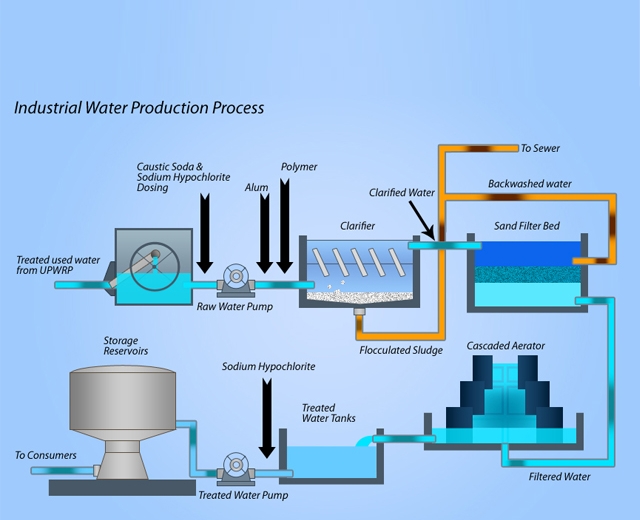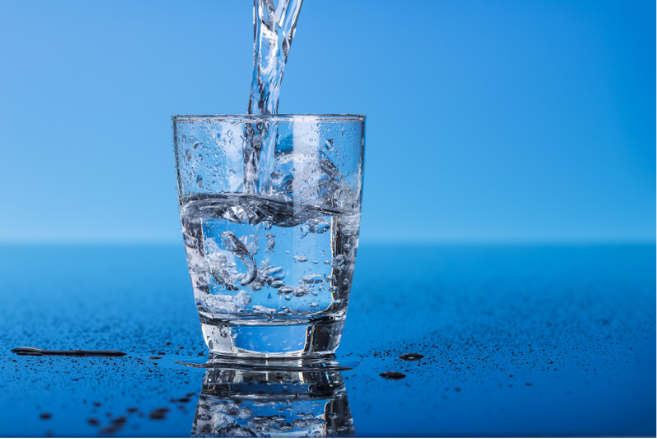Why You Required a Water Purification System for Tidy, Safe Water
Wiki Article
Why a Water Filtration System Is Crucial for Clean, Safe Water
Accessibility to tidy, secure water is an essential human right and a keystone of public wellness. Nevertheless, the existence of damaging pollutants such as virus, hefty metals, and chemical toxins in our water supply increases severe concerns about health and well-being. A water filtration system stands as an important solution to mitigate these threats, making sure that communities and people can access risk-free drinking water. Understanding the ins and outs of these systems and their various methods is essential, especially as we take into consideration the implications for health outcomes and environmental sustainability in our lives.Value of Tidy Water
Accessibility to clean water is a fundamental need for human health and wellness and well-being. Contaminated water can lead to major wellness problems, consisting of gastrointestinal diseases, cholera, and dysentery, especially in at risk populaces such as youngsters and the elderly.Furthermore, tidy water is critical for sanitation and health methods, which are important in avoiding the spread of infectious diseases. Appropriate water supports correct cleanliness facilities, advertising a healthier setting. In addition, accessibility to safe water influences socioeconomic factors, as it makes it possible for neighborhoods to participate in industrial and farming activities, inevitably adding to economic growth.
In lots of areas, the absence of clean water worsens poverty and inequality, more hindering progression towards sustainable advancement goals. Making certain access to clean water is not only a public wellness critical but likewise a keystone for social equity and economic growth. Efforts to improve water top quality and framework have far-reaching benefits, cultivating much healthier communities and improving lifestyle.

Common Impurities in Water
Guaranteeing the availability of tidy water is threatened by various pollutants that can compromise its safety and security and top quality. The existence of microorganisms, such as parasites, germs, and viruses, postures considerable health threats, particularly in locations lacking adequate cleanliness. These bacteria can cause waterborne diseases, causing serious disease and even fatality.Chemical impurities additionally provide a critical worry. Heavy steels, including mercury, arsenic, and lead, commonly enter water materials through commercial discharges or rusty pipes. These materials can build up in the body gradually, bring about long-term health and wellness concerns such as neurological damage and developmental problems.
Furthermore, farming overflow presents chemicals and plant foods into water systems, which can interfere with environments and adversely influence human health. Nitrates, typically found in plant foods, can cause serious conditions like methemoglobinemia, specifically in infants.
Benefits of Water Filtration Systems
Acknowledging the crucial demand for secure alcohol consumption water, water filtration systems supply a myriad of benefits that boost public wellness and ecological sustainability. Mostly, these systems properly remove damaging pollutants, including bacteria, infections, hefty steels, and chemicals, ensuring that the water eaten is without microorganisms and toxins. This decrease in impurities considerably lowers the danger of waterborne diseases, promoting total community wellness.Along with health and wellness advantages, water filtration systems add to ecological sustainability by reducing reliance on mineral water, which often generates too much plastic waste. By utilizing a purification system, families can lower their carbon impact and add to a much more sustainable ecological community. Moreover, these systems can enhance the taste and smell of water, making it much more palatable for everyday intake.

Various Kinds Of Purification Methods

One typical approach is reverse osmosis, which uses a semi-permeable membrane to different water from liquified solids and contaminants. This process properly reduces impurities, including heavy steels and chemicals. Another widely used technique is ultraviolet (UV) disinfection, which utilizes UV light to neutralize microorganisms and infections, rendering them harmless without making use of chemicals.
Triggered carbon filtering is another preferred method, making use of carbon to adsorb organic compounds, chlorine, and unpleasant odors, enhancing taste and smell top quality. Purification, a process that entails boiling water and condensing the vapor, properly eliminates minerals and impurities yet may require more power compared to other methods.
Ion exchange is commonly used to soften water by replacing calcium and magnesium ions with salt or potassium ions. Each approach has its limitations and advantages, making it necessary to understand their functionalities and performance in resolving certain water high quality problems - Water Purification System. Ultimately, selecting the ideal purification approach is crucial for ensuring tidy our website and risk-free alcohol consumption water
Selecting the Right System
Choosing an appropriate water filtration system calls for mindful consideration of various aspects, including the specific contaminants existing in the supply of water, the quantity of water needed, and the desired purification approach. It is important to perform a water quality test to recognize contaminants such as germs, heavy metals, or chemical toxins. This info will assist you in browse around these guys choosing a system that successfully targets those specific impurities.
Following, analyze your household's everyday water intake to figure out the system's ability. Systems are readily available in various sizes, from point-of-use filters for drinking water to whole-house devices that purify all water entering your home.
Additionally, take into consideration the purification approach that best fits your needs. For circumstances, reverse osmosis is extremely effective for removing a vast array of impurities, while UV filtration is outstanding for getting rid of bacteria.
Verdict
In final thought, the application of water purification systems is essential for ensuring accessibility to risk-free and clean water. By understanding the relevance of clean water and the advantages of various purification techniques, areas can make educated choices to safeguard their wellness and advertise socioeconomic security.Recognizing the critical need for safe alcohol consumption water, water purification systems use a myriad of benefits that boost public health and wellness and environmental sustainability.In enhancement to health benefits, water purification systems contribute to environmental sustainability by reducing reliance on bottled water, which frequently creates excessive plastic waste. Ultimately, the adoption of water filtration systems is a proactive step toward making certain clean, secure water for future generations while safeguarding public health and wellness and the environment.
Choosing an appropriate water purification system needs mindful factor to consider of various variables, including the details pollutants existing in the water supply, the quantity of water needed, and the wanted purification approach.In final thought, the implementation of water purification systems is critical for making sure access to tidy and safe water.
Report this wiki page